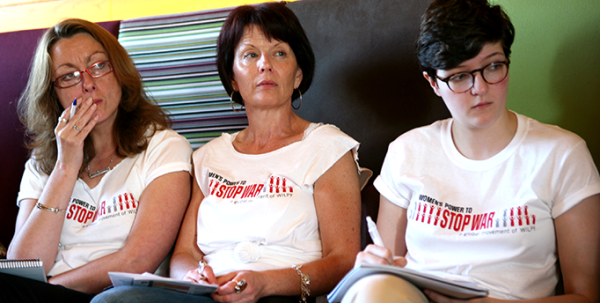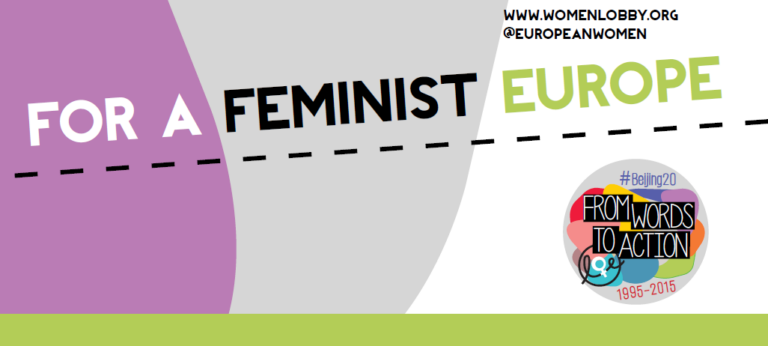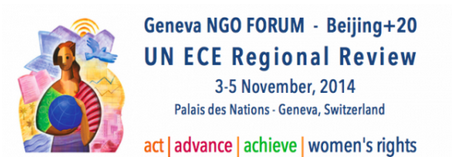[Statement of WILPF, 8 September 2014] The Women’s International League for Peace and Freedom (WILPF) welcomes the Report of the Independent Expert on the promotion of a democratic and equitable international order, particularly the multiple references to military expenditures as an obstacle to international peace and development.
In recent years, there has been an increasing number of states spending profusely on military activities; they continue to foster a culture of militarisation by maintaining, if not increasing, their military budgets with secrecy, minimum transparency and limited accountability. In 2013 alone, the total of global military expenditures surpassed 1700 billion USD.[1] Containing and dealing with the consequences of violence cost the world 9.8 trillion USD, which accounts for 11.3% of the global GDP.[2]
The Women’s International League for Peace and Freedom regrets the stark contrast between the vast amount of resources spent in the defence sector and the drastically reduced investments in the protection of human rights. National budgets should be reoriented towards the promotion of human rights, including gender equality, health, education and the environment. Cuts in defence budgets should be carried out for the sake of the protection of human rights, not just because of an economic recession, as it is often the case.
Excessive military expenditures pose an undeniable threat to the protection of human rights, especially women’s human rights, as it is an investment, not only in the tools of war, but also in the creation of a negative masculine cultural identity inherently linked to the use of violence as a means of conflict resolution. As a result, it undermines gender equality, facilitates gender-based violence and fosters ideas of “protective men” and “passive women”. Therefore, it is urgent that States cease to promote this culture of increasing militarisation and redirect their military-first budgets towards gender-aware budgets that consider the multiple needs of women and address gender equality as a priority.
Moreover, the level of secrecy and the lack of transparency around military budgeting often prevent the consideration and implementation of more gender-aware budgets. Additionally, they make it difficult to monitor the level of implementation of the Arms Trade Treaty (ATT), while the ATT should logically lead to a reduction in military spending. It is therefore necessary to involve civil society and women in particular in the budgeting process, in order to promote transparency and accountability in military budgeting.
The promotion of a democratic and equitable international order requires resolute political will that openly enhances public participation in decision-making and budgeting processes. Women’s participation is of the utmost importance to shift to gender-responsive budgets and as a result to foster conflict prevention and promote development.
Thus, the Women’s International League for Peace and Freedom:
- Calls for the reduction of military expenditures in favour of strategic investment in gender-aware budgets that promote gender equality through education, health procurement, political participation and representation.
- Encourages Member States to develop clear strategies to redirect military spending towards human rights’ protection and promotion.
- Recommends the implementation of effective monitoring and follow-up means, especially those established in the Arms Trade Treaty[3], facilitating genuine transparency and accountability in the arms trade.
- Calls for the establishment of national budgets that prioritize gender-responsiveness in their expenditures.
Contact us:
Léa Kor – Human Rights Programme Associate: lkor@wilpf.ch
Mia Gandenberger – Reaching Critical Will Programme Associate:
mia@reachingcriticalwill.org
[1] Stockholm International Peace Research Institute (SIPRI), 2014. Trends in World Military Expenditure, 2013: http://books.sipri.org/product_info?c_product_id=476
[2] Institute for Economics and Peace (IEP), Global Peace Index Report, 2014: http://www.visionofhumanity.org/sites/default/files/2014%20Global%20Peace%20Index%20REPORT.pdf
[3] UNODA, 2014. The Arms Trade Treaty (2013) : https://unoda-web.s3.amazonaws.com/wp-content/uploads/2013/06/English7.pdf



